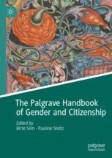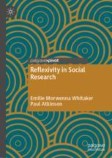Search
Search Results
-
From Effects of Governance to Causes of Epistemic Change
In this paper I argue that the attempts by science studies to identify epistemic effects of new governance instruments have largely failed. I suggest...

-
The Experience of Epistemic Injustice in Volunteering: The Case of Community Organizations in Quebec
Community organizations aim to promote social and environmental justice but can still reproduce injustice in their participatory and decision-making...
-
Some Notes on Anti-imperial Epistemic Justice
This afterword calls for anti-imperial epistemic justice. In making this call, it is specifically concerned with knowledge production on rights and...
-
The Corona Truth Wars: Epistemic Disputes and Societal Conflicts around a Pandemic—An Introduction to the Special Issue
Ever since the start of the Corona pandemic, different and often conflicting views have emerged about the virus and how to appropriately deal with...
-
Epistemologies of Feminist Art and Epistemic Injustices
This chapter moves beyond the debates of women’s representation in the art scene and the political and activist role of feminist art and focuses on...
-
Citizen Science in Deliberative Systems: Participation, Epistemic Injustice, and Civic Empowerment
In this paper, we bring together the literature on citizen science and on deliberative democracy and epistemic injustice. We argue that citizen...
-
Epistemic Just and Dynamic AI Ethics in Africa
This chapter considers the potential for actualising the ideal for responsible AI on the African continent, focusing on the AI ethics policy...
-
Analysing bio-art’s epistemic landscape: from metaphoric to post-metaphoric structure
Since its emergence, bio-art has developed numerous metaphors central to the transfer of concepts of modern biology, genetics, and genomics to the...

-
Towards a sociology of curiosity: theoretical and empirical consideration of the epistemic drive notion
The article argues for the social production of curiosity. Due its motivating characteristic, curiosity is reconceptualized as an epistemic drive ...

-
Making epistemic goods compatible: knowledge-making practices in a lifestyle intervention RCT on mindfulness and compassion meditation
Mindfulness and compassion meditation is a popular lifestyle intervention in randomised controlled clinical trials (RCTs), which examine its efficacy...

-
Acceptable Hierarchies: Epistemic Democracy in Europe and the Middle East
The people can tolerate elitists’ claims to be superior on three conditions, relating to distributive justice, open access, and transparent...

-
An epistemic network analysis of patient decision-making regarding choice of therapy
Patient decision-making concerning therapy choice has been thoroughly investigated in the Push/Pull framework: factors pushing the patient away from...

-
Knowing the Ocean: Epistemic Inequalities in Patterns of Science Collaboration
Ocean governance requires us to know the ocean. However, the knowledge systems that have shaped how and why we know the current ocean have been...
-
Brain-Based Addiction as an Epistemic Project
Representations, theories and models of addiction are all epistemic material that can be studied in view of the materialization and ‘making’ of an...
-
The Sustainable Development Goals as Epistemic Infrastructures
Over the last three decades, quantification has emerged as the predominant governing logic in global public policy. In this introductory chapter, we...
-
The Turn Towards ‘The Biosocial’ in Epigenetics: Ontological, Epistemic and Socio-Political Considerations
This chapter critically scrutinises the relevance of ‘biosocial’ ideas in relation to epigenetics. Its purpose is to distinguish and characterise the...
-
Epistemic Inroads from the Asylum to Digital Psychiatry
This chapter traces the development of expertise about mental health from the early days of the asylum to the hopes and anxieties that are currently...
-
Epistemic and Disciplinary Reflexivity
This chapter takes the discussion further by examining the most fundamental and far-reaching meaning of reflexivity. Epistemic reflexivity is the...
-
‘Hallucination’: Hospital Ecologies in COVID’s Epistemic Instability
Historians and ethnographers have described biomedicine as a modernist project that imagines accumulating ever-more stable knowledge over time. This...

-
Disentangling Discursive Spaces of Knowledge Refused by Science: An Analysis of the Epistemic Structures in the Narratives Repertoires on Health During the Covid-19 Pandemic
This chapter provides an understanding of the social configurations with which Refused Knowledge Communities (RKCs) attribute credibility to...
